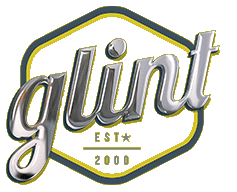ChatGPT has been the tech world’s new “it girl” since its release in November 2022.
It’s all anyone can talk about, but what do you really know about it? What is ChatGPT? It is a powerful language-processing AI bot that engages in human-like dialogue based on a prompt. It can do everything from writing articles and essays to composing poetry!
But did you know ChatGPT is only one of many widely used AI platforms developed by its parent company OpenAI, an artificial intelligence research organization founded in 2015 by entrepreneurs, researchers, and technologists, including Elon Musk, Sam Altman, and Greg Brockman?
OpenAI’s artificial intelligence platforms have been used in a wide range of applications, including:
Customer Service: AI-powered chatbots and virtual assistants have been used to automate customer service tasks, such as answering common questions and resolving issues.
Marketing: OpenAI platforms have been used to generate high-quality content, personalize marketing messages, and provide predictive analytics insights.
Healthcare: AI-powered platforms have assisted with medical diagnosis, drug discovery, and patient monitoring.
Robotics: OpenAI has also worked on developing advanced robotics technologies, including reinforcement learning algorithms that enable robots to learn and adapt to new environments.
Although OpenAI’s artificial intelligence technologies offer a wide range of current and potential future applications in various industries and fields, is it right for your marketing strategy?
Incorporating an OpenAI platform can provide many benefits to a marketing strategy.
However, some potential limitations should be considered:
Cost
Implementing an OpenAI platform can be expensive, requiring significant technology, infrastructure, and personnel investment. Small businesses may not have the resources to implement an OpenAI platform effectively, which can put them at a disadvantage compared to larger competitors.
Integration
Integrating an OpenAI platform with existing marketing tools and systems can be complex and time-consuming. It may require significant changes to the marketing stack and infrastructure, which can disrupt existing processes and workflows.
Accuracy
While OpenAI platforms are designed to be highly accurate and reliable, there is always a risk of errors or inaccuracies in the output. These errors can lead to incorrect information being provided to customers, damaging a brand’s reputation and trust.
Data Privacy
OpenAI platforms require large amounts of data to function effectively, which can raise privacy concerns. Marketers must be careful to ensure that they comply with relevant data privacy regulations and that customer data is being used responsibly and ethically.
User Experience
Using an OpenAI platform can sometimes result in a less personalized and humanized customer experience. While chatbots and other AI-powered tools can provide quick and efficient responses, they may not replicate the level of empathy and understanding that a human agent can provide.
Before you get caught up in the hype of artificial intelligence and decide to integrate it into your marketing strategy, it is important to carefully weigh the potential downsides and ensure that the implementation is aligned with your company’s business goals and customer needs.
Want to work with a partner who understands AI but adds a human touch. Request a free consultation with Glint Advertising.







